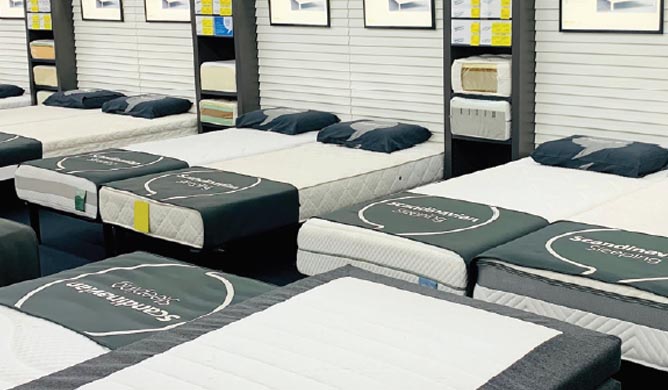Location, location, location. That is the basic mantra when one wants to start a Retail Store Business in any city or town in the country. The location can make or mar your business, and a number of factors need to be considered while deciding where to set up your store, which includes visibility, traffic movement and affordability of the space you are going to rent out.
Depending on the kind of retail store business you are setting up, you should look at the demographic of the population around your establishment. People should be able to afford the goods that you are selling. If the products are high-priced, you should do enough research to find out if high-earning members of society are situated close to your shop. Or if you are setting up a convenience store that sells goods like groceries, vegetables, milk and milk products, then it is better if it is in a residential area, where there is enough movement of people and is at a shorter distance from a cluster of houses.
For once-in-a-lifetime purchases, like furniture, precious jewellery and antiques, you should look at high-end streets with neighbouring shops complementing your establishment. Except for convenience stores, all other kinds of retail businesses need sufficient and convenient parking availability and easy access from the street. You could drive away your customers if you are unable to offer sufficient parking spaces, especially in a city like Bengaluru, which is dogged by perennial traffic jams.

CUSTOMERS TEND TO GROUP PRODUCTS INTO THREE MAJOR CATEGORIES:
CONVENIENCE, SHOPPING, AND SPECIALTY GOODS
When picking a city, a Retail store outlet should look at the population, trading area, competition, total business conducted and the number of people with purchasing power. After choosing the area, one needs to look at the types of people staying close by, the street traffic and the neighbourhood matching the products you are putting on offer.
You cannot place a jewellery store next to a Kirana store or a small convenience store. The same business in an up-market area, like MG Road in Bengaluru, would do brisker business than in other parts of the city. While convenience goods are purchased by everyone, shopping goods are bought by only a certain type of people. Since these goods are higher priced and are not bought often, a customer tends to compare products offered by different sellers before finalising the purchase.
At times, the location is more important than the goods a Retailer is offering. For example, artefacts that require bigger spaces for display are normally situated on the outskirts of a city as the area needed is big, and rents are generally low in the suburbs.
Cloth retailers must ensure that they have big display windows and are on streets with enough people moving around on foot. Even if the space they acquire could be small, they should make their shops attractive with bright lighting. A food retailer is better off if he is situated on a street filled with a variety of restaurants pubs and bars. Most of the time, a customer decides at the moment what he would like to consume and walks in. A book retailer can afford to be on the first or higher floors of a shopping complex and need not spend on the high rentals for the ground floor, as people interested in reading do go to great lengths to possess books of their choice and don’t mind a little inconvenience. But it is not the same with sports goods and other retailers.
Even among cloth retailers, the range of pricing and products offered varies as one moves away from the Central Business District. That is why expensive goods stores are at the hub of business activity of a city and the pricing of products seems to go progressively lower as one moves away from these hubs. While an expensive clothing item can be sold at a shopping mall or a high street, a retailer cannot expect to make good money if he stocks the same product in a residential area away from the city centre, where low-income groups of residents stay. But a furniture retailer needs good visibility as well as large areas to display his ware. He generally occupies ground floors of large business complexes as it is easier for customers to visit his shop.
But the most desired areas are shops at the corner of two streets as a retailer gets to display his ware for people on two stretches and offers a larger view for his customers. With due diligence and the right research, a retailer can pick ideal locations for his units and succeed. There are three phases of choosing a location for your retail store business selection of a city, choice of an area or type of location within a city, and identification of a specific site.
TYPE OF PRODUCTS AND LOCATION CHOICE
Another factor that affects site selection is the customer’s view of the goods you sell or the services you offer. Customers tend to group products into three major categories: convenience, shopping, and speciality goods.
- Shopping goods usually have a high unit price, are purchased infrequently, and require an intensive selling effort. The customer does price and feature comparisons, and products are sold in selectively franchised outlets. Examples include men’s suits, automobiles, and furniture. For stores handling shopping goods, the quality of the traffic is important. While convenience goods are purchased by nearly everyone, certain kinds of shopping goods are purchased only by segments of shoppers. Moreover, it’s sometimes the character of the retail establishment rather than its type of goods that governs the site selection. For example, a conventional men’s clothing store generally does best in a downtown location close to a traffic generator like a department store. On the other hand, a discount menswear store tends to require an accessible highway location. In many cases, buyers of shopping goods like to compare the items in several stores by travelling only a minimum distance. As a result, stores offering complementary items tend to be located close to one another. Another excellent site for a shopping goods store is next to a department store, or between two large department stores, where traffic flows between them. Another option is to locate between a major parking area and a department store. A retailer dealing in shopping goods can have a much wider trading area than convenience goods stores. Without a heavily trafficked location, this more expensive type of store can generate its own traffic. In this case, a location with a low traffic count but easy accessibility from a residential area is a satisfactory site.
- Speciality goods usually have a high price tag, are bought infrequently, and require a special effort to make the purchase. Precious jewellery, expensive perfume, and rare antiques are in this merchandise category. Speciality goods are often sought by customers who are already “sold” on the product, brand, or both. Stores catering to this type of consumer may use isolated locations because they generate their own consumer traffic. In general, speciality goods retailers should be located in neighbourhoods where the adjacent stores and other establishments are compatible with their operations.
IN CHOOSING A CITY, INVESTIGATE THESE MAIN FACTORS:
- Size of the city’s trading area
- Population and population trends
- Total purchasing power and who has it
- Total retail trade potential for different lines of trade
- Number and size of Competition
- Quality and aggressiveness of competition
CHOOSE AN AREA OR TYPE OF LOCATION WITHIN THAT CITY BY EVALUATING THESE:
- Customer attraction power
- The nature of competition
- Availability of access-routes to the stores
- Zoning regulations
- Geographic direction of the city’s expansion
- General appearance of the area
- Sales and traffic growth prospects of the trade area
- Demographics of neighborhoods
Signage, Zoning, and Planning
Before signing a lease, be sure you understand all the rules, policies and procedures related to your retail store location. Contact the local administration and zoning commission for information on regulations regarding signage. There may be limits on the size and imagery used in signs that advertise your business. Ask about any restrictions that may affect your retail operation and any future planning that could change traffic, such as highway construction.
Competition and Neighbors
Other area businesses in your prospective location can actually help or hurt your retail shop. Determine if the types of businesses nearby are compatible with your store. For example, a high-end fashion boutique may not be successful next door to a discount variety store. Position it next to a nail- or hair salon, which tends to draw the same demographic of customers, to more optimal results. Speciality goods fulfil more unique needs than general-purpose products.
Customers generally won’t mind travelling out of their way to purchase this type of product because they cannot procure them through convenience or general goods retailers. This type of store may perform well near other shopping locations because their offerings may complement each other. Choosing a good location for a retail store is more about understanding customers and their preferences. A thorough study is called for before zeroing in on the right location.


